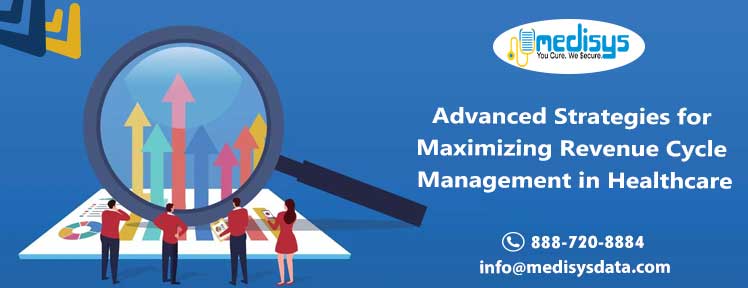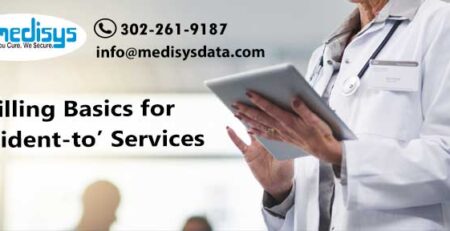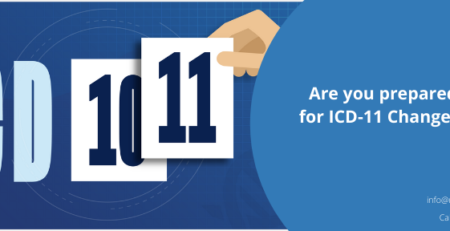Introduction
Effective Revenue Cycle Management (RCM) is crucial for the financial health of healthcare providers. By optimizing each step of the RCM process, healthcare practices can improve cash flow, reduce claim denials, and ensure timely reimbursements. This article explores into advanced strategies for maximizing revenue cycle management, providing healthcare providers with the knowledge and tools to enhance their financial performance.
1. Advanced Data Analytics and Reporting
Predictive Analytics
Predictive analytics leverages historical data to forecast future trends and behaviors. In healthcare RCM, predictive analytics can be used to anticipate patient payment behaviors, identify potential issues in the billing process, and predict claim denials before they occur. By analyzing patterns in patient demographics, payment histories, and service utilization, healthcare providers can develop more accurate financial plans and reduce revenue uncertainty.
Data-Driven Decision Making
Data-driven decision-making involves using detailed financial reports and data analysis to inform strategic choices. By regularly reviewing metrics such as cash flow, accounts receivable (AR) aging, and collection rates, providers can identify areas needing improvement. Implementing dashboards and automated reporting tools can help track performance and make informed decisions quickly.
KPIs to Monitor
Key Performance Indicators (KPIs) are essential for measuring the efficiency of RCM processes. Important KPIs include:
- Days in Accounts Receivable (AR): Measures the average number of days it takes to collect payments. Lower days in AR indicate a more efficient revenue cycle.
- Claim Denial Rate: The percentage of claims denied by payers. A high denial rate suggests issues with the billing process that need addressing.
- Net Collection Rate: The percentage of payments collected out of the total amount billed. A higher net collection rate indicates effective revenue capture.
2. Improving Patient Engagement and Communication
Transparent Billing Practices
Transparent billing practices are critical for building trust with patients and improving satisfaction. Clearly explain charges, insurance coverages, and payment responsibilities upfront. Providing itemized bills and easy-to-understand explanations can reduce confusion and disputes, leading to quicker payments.
Payment Plans and Financial Counseling
Offering flexible payment plans and financial counseling can help patients manage their medical expenses. Payment plans allow patients to spread out costs over time, making it easier for them to afford their care. Financial counseling can assist patients in understanding their bills, exploring payment options, and applying for financial assistance programs.
Utilizing Technology for Communication
Technology plays a significant role in enhancing patient communication. Automated reminders for upcoming payments, patient portals for accessing billing information, and mobile apps for managing payments can streamline the process. These tools not only improve patient satisfaction but also increase the likelihood of timely payments.
3. Efficient Claims Management
Pre-Authorization and Eligibility Verification
Thorough pre-authorization and eligibility verification are essential for preventing claim denials. Before providing services, verify patients’ insurance coverage and obtain necessary pre-authorizations. This ensures that services are covered and reduces the risk of denied claims due to eligibility issues.
Claims Scrubbing Technology
Claims scrubbing technology checks claims for errors and inconsistencies before submission. By catching mistakes early, such as incorrect codes or missing information, claims scrubbing reduces the likelihood of denials. This technology ensures that claims are clean and accurate, increasing the chances of prompt reimbursement.
Appealing Denied Claims
Despite best efforts, some claims may still be denied. Having an effective appeal process in place is crucial. This includes promptly addressing denials, providing proper documentation, and following up with payers. Understanding the common reasons for denials and addressing them proactively can also reduce future occurrences.
4. Staff Training and Development
Continuous Education
Continuous education and training for billing and coding staff are essential to keep them updated with the latest regulations, coding standards, and technologies. Regular training sessions and certification programs can enhance their skills and ensure compliance with industry standards.
Cross-Training Staff
Cross-training staff to handle multiple aspects of the RCM process improves flexibility and efficiency. Employees who understand various functions, such as billing, coding, and patient communication, can better manage workloads and address issues quickly. This approach also fosters a collaborative work environment and enhances overall productivity.
5. Compliance and Regulatory Updates
Staying Updated with Regulations
Healthcare regulations and payer policies are constantly evolving. Staying updated with these changes is crucial to avoid compliance issues and penalties. Regularly reviewing and updating billing practices to align with current regulations ensures that claims are processed smoothly and accurately.
HIPAA Compliance
Compliance with the Health Insurance Portability and Accountability Act (HIPAA) is mandatory for protecting patient information. Ensuring that all RCM practices adhere to HIPAA regulations helps safeguard patient data and prevent legal complications. Implementing robust security measures and conducting regular audits are key steps in maintaining HIPAA compliance.
6. Partnering with Professional RCM Services
Benefits of Outsourcing
Outsourcing RCM services to specialized firms can offer numerous benefits, including cost savings, improved efficiency, and access to expertise. Professional RCM companies have the experience and resources to handle complex billing and coding tasks, allowing healthcare providers to focus on patient care.
Choosing the Right Partner
Selecting a reliable RCM service provider is critical. Look for firms with proven track records, industry certifications, and advanced technology capabilities. Assess their experience with similar healthcare practices and check client testimonials to ensure they can meet your specific needs.
To conclude,
Maximizing revenue cycle management requires a comprehensive approach that incorporates advanced strategies and technologies. By focusing on data analytics, patient engagement, efficient claims management, staff training, compliance, and partnering with professional RCM services, healthcare providers can enhance their financial performance. Continuously evaluating and improving RCM processes is essential for sustaining financial health and growth in the dynamic healthcare landscape.
For more insights and updates on maximizing revenue cycle management, subscribe to our newsletter. If you need further assistance in optimizing your RCM processes, consider scheduling a free consultation with our experts at 888-720-8884 / info@medisysdata.com.. Together, we can build a robust and efficient RCM system tailored to your practice’s needs.












